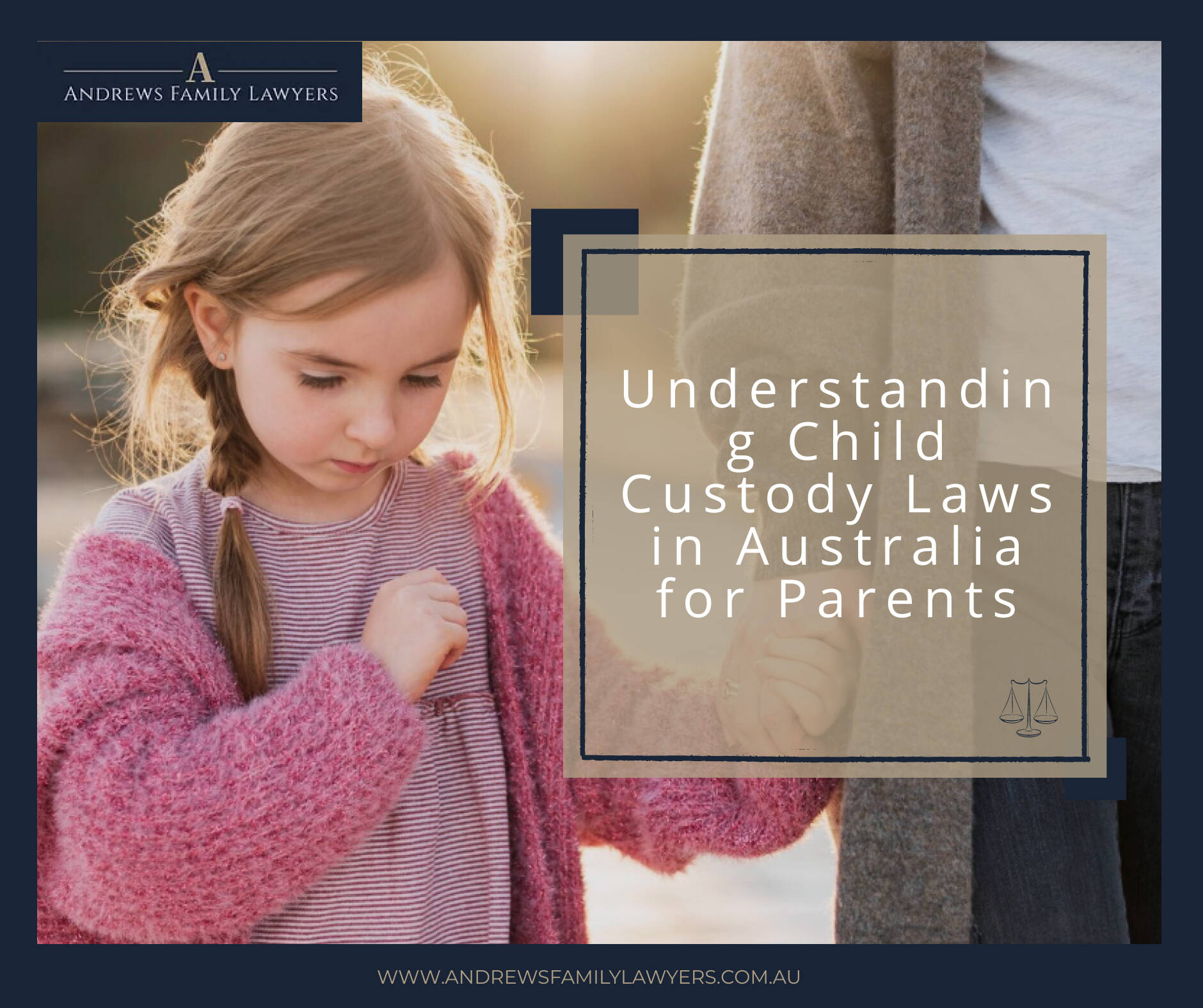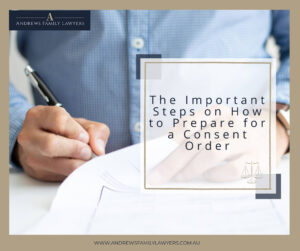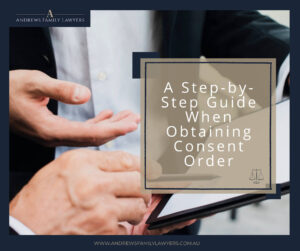Understanding child custody laws is crucial as the welfare of children and who has custody is one of the most significant decisions to be made.
When parents of a child under the age of 18 separate, they both retain responsibility for the child’s welfare and financial support, irrespective of their relationship status.
Child custody arrangements should be designed with the child’s best interests. If you and your child’s other parent cannot agree, the court will consider several factors when granting child custody and child support.
This article outlines what you need to know when deciding about child custody.
Child Custody Laws in Australia
Child custody law in Australia falls under the Family Law Act 1975. The Act clearly outlines that child custody considers the child’s best interests and that parents have responsibilities to their child, not rights.
As a parent, you must prioritise your child’s interests over your own. The Act is also gender-neutral, meaning there is no presumption about parenting roles.
Child custody is referred to by law as ‘parental responsibility’. The statutory presumption is that both parents will share equal responsibility in caring for the child.
This means both parents have a role in making decisions that impact the long-term situation for the child, such as where they will live, what school they attend, religious upbringing and major medical decisions.
Shared responsibility will look different in each family situation, and the time spent with each parent and the role each plays in the child’s life are very personal, individual decisions. The court may disregard the presumption of shared responsibility if it is not in the child’s best interests.

Considerations of the Court When Determining Child Custody
There are two main things the court considers when deciding who is awarded custody of a child:
- a child’s right to benefit from both of their parents having meaningful involvement in their life; and
- the need to protect the child from being exposed to harm, abuse or neglect.
This means if domestic violence or any form of abuse or neglect are present, the court is most concerned with protecting the child, and will therefore be unlikely to consider shared custody in the child’s best interests.
Once the main considerations are addressed, the court will consider a number of other factors to determine what is in the best interests of the child. These may include:
- views expressed by the child;
- the relationship the child has with each parent or guardian;
- the willingness of each parent to encourage and help facilitate the child’s relationship with the other parent;
- the parents’ ability to fulfil the child’s needs.
A court may determine it is in the child’s best interests to remove parental responsibility from one or both parents, and it may also assign parental responsibility to another legal guardian.

Is it necessary to go to court to settle a child custody dispute?
No, if you and your ex partner can reach an agreement on who has custody of your child, what time will be spent with the child and any child support required, you do not have to go to court.
You can make a parenting agreement with the help of an experienced family lawyer, or you can obtain ‘consent orders’ for parenting orders which a court approves.
What if the other parent does not act in accordance with the court´s decision?
You may need to apply for one if you originally made arrangements outside of court. If you have a court order, our child custody lawyers can advise on whether you should take legal action or look at changing the order to satisfy the new needs.
Applying For Full Custody of a Child in Australia
The law presumes parental responsibility should be shared equally unless it is found this is not in the child’s best interests, and there are some cases where full custody is granted to one parent or guardian.
In some cases, a parent may wish to get full custody of a child because they disagree with their ex partner or are unable to have an amicable relationship with them, and they are afraid they might lose custody altogether.

Firstly, it’s important to understand that this is rarely how parenting arrangements work unless extraordinarily unusual circumstances exist.
If the court hears your case, the court will consider each parent’s behaviour toward the child and each other, so unless there is violence, abuse or similar present, in most cases, both parents would be granted shared custody.
Secondly, shared custody does not equate to shared time spent with your child, so it is possible and quite common to have shared custody of a child who lives with one parent 100% of the time.
Does equal custody mean equal time?
Under Australian Law, ‘access’ to your child is referred to as to ‘spend time’ with your child.
Shared parental responsibility – ie. child custody – differs from equal time spent.
This means that while you may share the responsibility of child support 50/50, this doesn’t automatically mean you share the time spent with your child 50/50.
You and your child’s other parent will spend equal time with your child only if:
- you both agree this works best for your child and each of you; or
- the court finds that equal time is in the best interest of the child and is the best arrangement for your family.
In most cases it is best if both parents can discuss the needs and what is in the best interest of their child in terms of where the child will live and how they will spend time with each parent.
Detailed blog here: How to Apply For Full Child Custody in Australia?
Common Questions About Child Custody
Is child custody usually split 50/50?
Under Australian Family Law, every parent is responsible for their child’s wellbeing and financial support. This applies in all situations, regardless of whether the parents are married, in a relationship, separated, never in a relationship, or otherwise.
This allows each parent to decide about their child, together or individually. The Family Law Act 1975 presumes that custody, meaning responsibility for your child’s welfare and financial support, is split equally between both parents.
This means that you and your child’s other parent would share equal responsibility for and play a role in making decisions about your child’s life and future, such as where they will live, what school they will attend, or any religious observance.
This presumption only applies if this is in the child’s best interest. That means that if the court finds it is in the child’s best interest that one parent makes these decisions only, custody would likely not be split 50/50.
This usually occurs in circumstances where there is domestic violence, abuse, or neglect, and therefore the court will rule that the child’s welfare may be compromised.

How are the financial costs distributed if one parent is given full custody?
As is outlined in our Guide to Child Support in Australia, regardless of who has custody of a child, both parents have a financial responsibility to support the wellbeing and future of their child. So when one parent is granted full custody, the other parent is still required to support their child financially.
There is no one-size-fits-all for how child support payments work, and they can be paid in several ways, including regular payments or one parent being responsible for certain costs such as school fees.
Regardless of whether you think you can agree on what your ex-partner will pay or you may need to go to court, you should seek legal advice from an experienced family lawyer to ensure you receive sufficient financial support for your child’s welfare.
Can an appeal be made if the determined arrangements are not working?
If you have made arrangements with your ex-partner outside of the court, you can change them through negotiation. It’s always advisable to seek legal advice even if you have an amicable relationship with your ex-partner, especially if you need mediation or assistance negotiating new arrangements.
If you have a court order, you must satisfy the court that there has been a significant change in circumstances.
Related: What is Child Support in Australia?
A Child Custody Case Study
Rebuttal of presumption for shared parental responsibility
A recent Family Court case provided a rebuttal to the presumption of shared parental responsibility. It was a mother and father whose relationship had broken down so far that they could not reach joint decisions relating to major long-term issues in respect of their children.
The court found that it was not in the children’s best interests for the parents to share equal parental responsibility.
In this case, sole parental responsibility was given to the father, whom the children were to live with. The father was to notify the mother before making any major long-term decisions for the children, but his sole responsibility was to make them.

Conclusion
It’s important to keep in mind that child custody laws exist to serve the best interests of the child. When parents separate, they still share the responsibility for their children’s wellbeing and financial support, regardless of their marital or relationship status.
If parents can’t agree on custody arrangements, the courts can step in to make a decision based on various factors. The child’s safety and welfare are the top priority. For parents who can agree independently, legal avenues like consent orders can formalise the arrangement without going to court.
However, legal action may be necessary if disagreements persist or if the agreed terms are not followed.
If you need assistance with family law matters, Andrews Family Lawyers can help.






